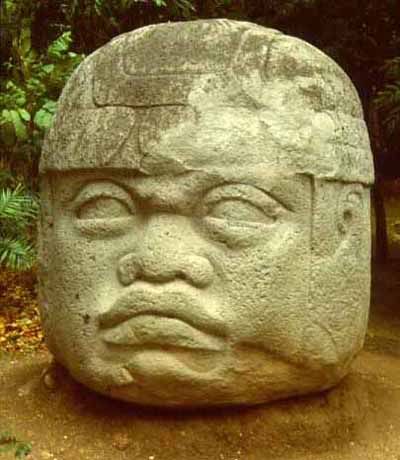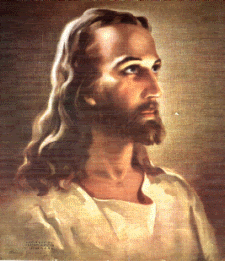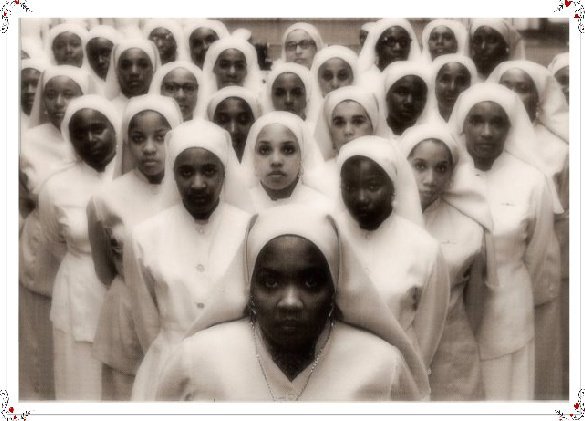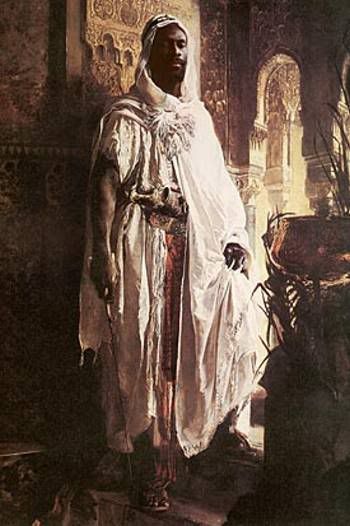
"A wise man who knows proverbs, reconciles difficulties." African Proverb

Why the Christian God is Impossible.

Introduction
Christians consider the existence of their God to be an obvious truth that no sane man could deny. I strongly disagree with this assumption not only because evidence for the existence of this presumably ubiquitous yet invisible God is lacking, but because the very nature Christians attribute to this God is self-contradictory.
Proving a Universal Negative.
it is taken for granted by Christians, as well as many atheists, that a universal negative cannot be proven. In this case, that universal negative is the statement that the Christian God does not exist. One would have to have omniscience, they say, in order to prove that anything does not exist. I disagree with this position; however, because omniscience is not needed in order to prove that a thing whose nature is a self-contradiction cannot, and therefore does not exist.
I do not need a complete knowledge of the universe to prove to you that cubic spheres do not exist. Such objects have mutually-exclusive attributes which would render their existence impossible. For example, a cube, by definition, has 8 corners, while a sphere has none. These properties are completely incompatible: they cannot be held simultaneously by the same object. It is my intent to show that the supposed properties of the Christian God Yahweh, like those of a cubic sphere, are incompatible, and by so doing, to show Yahweh's existence to be an impossibility.
Defining YHWH.
before we can discuss the existence of a thing, we must define it. Christians have endowed their God with all of the following attributes: He is eternal, all-powerful, and created everything. He created all the laws of nature and can change anything by an act of will. He is all-good, all-loving, and perfectly just. He is a personal God who experiences all of the emotions a human does. He is all-knowing. He sees everything past and future.
God's creation was originally perfect, but humans, by disobeying him, brought imperfection into the world. Humans are evil and sinful, and must suffer in this world because of their sinfulness. God gives humans the opportunity to accept forgiveness for their sin, and all who do will be rewarded with eternal bliss in heaven, but while they are on earth, they must suffer for his sake. All humans who choose not to accept this forgiveness must go to hell and be tormented for eternity.
One Bible verse which Christians are fond of quoting says that atheists are fools. I intend to show that the above concepts of God are completely incompatible and so reveal the impossibility of all of them being true. Who is the fool? The fool is the one who believes impossible things and calls them divine mysteries.
Perfection Seeks Even More Perfection.
what did God do during that eternity before he created everything? If God was all that existed back then, what disturbed the eternal equilibrium and compelled him to create? Was he bored? Was he lonely? God is supposed to be perfect. If something is perfect, it is complete--it needs nothing else. We humans engage in activities because we are pursuing that elusive perfection, because there is disequilibrium caused by a difference between what we are and what we want to be. If God is perfect, there can be no disequilibrium. There is nothing he needs, nothing he desires, and nothing he must or will do. A God who is perfect does nothing except exist. A perfect creator God is impossible.
Perfection Begets Imperfection.
but, for the sake of argument, let's continues. Let us suppose that this perfect God did create the universe. Humans were the crown of his creation, since they were created in God's image and have the ability to make decisions. However, these humans spoiled the original perfection by choosing to disobey God.
What!? If something is perfect, nothing imperfect can come from it. Someone once said that bad fruit cannot come from a good tree, and yet this "perfect" God created a "perfect" universe which was rendered imperfect by the "perfect" humans. The ultimate source of imperfection is God. What is perfect cannot become imperfect, so humans must have been created imperfect. What is perfect cannot create anything imperfect, so God must be imperfect to have created these imperfect humans. A perfect God who creates imperfect humans is impossible.
The Freewill Argument.
The Christians' objection to this argument involves freewill. They say that a being must have freewill to be happy. The omni benevolent God did not wish to create robots, so he gave humans freewill to enable them to experience love and happiness. But the humans used this freewill to choose evil, and introduced imperfection into God's originally perfect universe. God had no control over this decision, so the blame for our imperfect universe is on the humans, not God.
Here is why the argument is weak. First, if God is omnipotent, then the assumption that freewill is necessary for happiness is false. If God could make it a rule that only beings with freewill may experience happiness, then he could just as easily have made it a rule that only robots may experience happiness. The latter option is clearly superior, since perfect robots will never make decisions which could render them or their creator unhappy, whereas beings with freewill could. A perfect and omnipotent God who creates beings capable of ruining their own happiness is impossible.
Second, even if we were to allow the necessity of freewill for happiness, God could have created humans with freewill who did not have the ability to choose evil, but to choose between several good options.
Third, God supposedly has freewill, and yet he does not make imperfect decisions. If humans are miniature images of God, our decisions should likewise be perfect. Also, the occupants of heaven, who presumably must have freewill to be happy, will never use that freewill to make imperfect decisions. Why would the originally perfect humans do differently?
The point remains: the presence of imperfections in the universe disproves the supposed perfection of its creator.
All-good God Knowingly Creates Future Suffering.
God is omniscient. When he created the universe, he saw the sufferings which humans would endure as a result of the sin of those original humans. He heard the screams of the damned. Surely he would have known that it would have been better for those humans to never have been born (in fact, the Bible says this very thing), and surely this all-compassionate deity would have foregone the creation of a universe destined to imperfection in which many of the humans were doomed to eternal suffering. A perfectly compassionate being who creates beings which he knows are doomed to suffer is impossible.
Infinite Punishment for Finite Sins.
God is perfectly just, and yet he sentences the imperfect humans he created to infinite suffering in hell for finite sins. Clearly, a limited offense does not warrant unlimited punishment. God's sentencing of the imperfect humans to an eternity in hell for a mere mortal lifetime of sin is infinitely more unjust than this punishment. The absurd injustice of this infinite punishment is even greater when we consider that the ultimate source of human imperfection is the God who created them. A perfectly just God who sentences his imperfect creation to infinite punishment for finite sins is impossible.
Belief More Important than Action.
Consider all of the people who live in the remote regions of the world who have never even heard the "gospel" of Jesus Christ. Consider the people who have naturally adhered to the religion of their parents and nation as they had been taught to do since birth. If we are to believe the Christians, all of these people will perish in the eternal fire for not believing in Jesus. It does not matter how just, kind, and generous they have been with their fellow humans during their lifetime: if they do not accept the gospel of Jesus, they are condemned. No just God would ever judge a man by his beliefs rather than his actions.
Perfection's Imperfect Revelation.
The Bible is supposedly God's perfect Word. It contains instructions to humankind for avoiding the eternal fires of hell. How wonderful and kind of this God to provide us with this means of overcoming the problems for which he is ultimately responsible! The all-powerful God could have, by a mere act of will, eliminated all of the problems we humans must endure, but instead, in his infinite wisdom, he has opted to offer this indecipherable amalgam of books which is the Bible as a means for avoiding the hell which he has prepared for us. The perfect God has decided to reveal his wishes in this imperfect work, written in the imperfect language of imperfect man, translated, copied, interpreted, voted on, and related by imperfect man.
No two men will ever agree what this perfect word of God is supposed to mean, since much of it is either self- contradictory, or obscured by enigmatic symbols. And yet the perfect God expects us imperfect humans to understand this paradoxical riddle using the imperfect minds with which he has equipped us. Surely the all-wise and all-powerful God would have known that it would have been better to reveal his perfect will directly to each of us, rather than to allow it to be debased and perverted by the imperfect language and botched interpretations of man.
Contradictory Justice.
one need look to no source other than the Bible to discover its imperfections, for it contradicts itself and thus exposes its own imperfection. It contradicts itself on matters of justice, for the same just God who assures his people that sons shall not be punished for the sins of their father’s turns around and destroys an entire household for the sin of one man (he had stolen some of Yahweh's war loot). It was this same Yahweh who afflicted thousands of his innocent people with plague and death to punish their evil king David for taking a census (?!). It was this same Yahweh who allowed the humans to slaughter his son because the perfect Yahweh had botched his own creation. Consider how many have been stoned, burned, slaughtered, raped, and enslaved because of Yahweh's skewed sense of justice. The blood of innocent babies is on the perfect, just, compassionate hands of Yahweh.
Contradictory History.
The Bible contradicts itself on matters of history. A person who reads and compares the contents of the Bible will be confused about exactly who Esau's wives were, whether Timnah was a concubine or a son, and whether Jesus' earthly lineage is through Solomon or his brother Nathan. These are but a few of hundreds of documented historical contradictions. If the Bible cannot confirm itself in mundane earthly matters, how are we to trust it on moral and spiritual matters?
Unfulfilled Prophecy.
The Bible misinterprets its own prophecies. Read Isaiah 7 and compare it to Matthew 1 to find but one of many misinterpreted prophecies of which Christians are either passively or willfully ignorant. The fulfillment of prophecy in the Bible is cited as proof of its divine inspiration, and yet here is but one major example of a prophecy whose intended meaning has been and continues to be twisted to support subsequent absurd and false doctrines. There are no ends to which the credulous will not go to support their feeble beliefs in the face of compelling evidence against them.
The Bible is imperfect. It only takes one imperfection to destroy the supposed perfection of this alleged Word of God. Many have been found. A perfect God who reveals his perfect will in an imperfect book is impossible.
The Omniscient Changes the Future.
A God who knows the future is powerless to change it. An omniscient God who is all-powerful and free willed is impossible.
The Omniscient is Surprised.
A God who knows everything cannot have emotions. The Bible says that God experiences all of the emotions of humans, including anger, sadness, and happiness. We humans experience emotions as a result of new knowledge. A man who had formerly been ignorant of his wife's infidelity will experience the emotions of anger and sadness only after he has learned what had previously been hidden. In contrast, the omniscient God is ignorant of nothing. Nothing is hidden from him, nothing new may be revealed to him, so there is no gained knowledge to which he may emotively react.
We humans experience anger and frustration when something is wrong which we cannot fix. The perfect, omnipotent God, however, can fix anything. Humans experience longing for things we lack. The perfect God lacks nothing. An omniscient, omnipotent, and perfect God who experiences emotion is impossible.
The Conclusion of the matter.
I have offered arguments for the impossibility, and thus the non- existence, of the Christian God Yahweh. No reasonable and freethinking individual can accept the existence of a being whose nature is as contradictory as that of Yahweh, the "perfect" creator of our imperfect universe. The existence of Yahweh is as impossible as the existence of cubic spheres or invisible pink unicorns.
Should any Christian who reads this persist in defending these impossibilities through means of "divine transcendence" and "faith," and should any Christian continue to call me an atheist fool, I will be forced to invoke the wrath of the Invisible Pink Unicorn:
"You are a fool for denying the existence of the IPU. You have rejected true faith and have relied on your feeble powers of human reason and thus arrogantly denied the existence of Her Divine Transcendence, and so are you condemned."
If such arguments are good enough for Yahweh, they are good enough for Her Invisible Pinkness.
As for me and my house, we shall choose reality.















